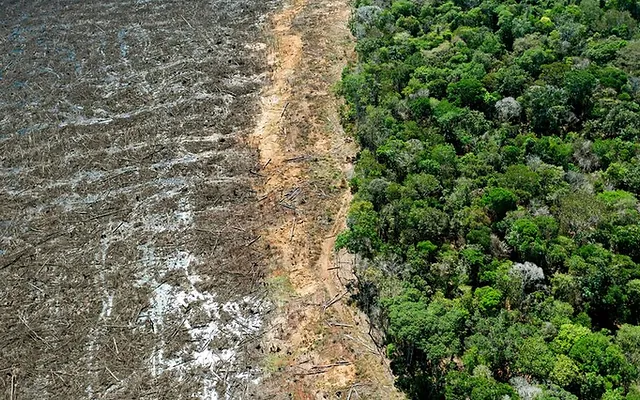One of the world’s top climate scientists, Johan Rockström, has warned that human destruction of nature is pushing the planet to a point of no return, and even a phase-out of fossil fuels will not stave off climate breakdown unless we also protect the natural world.
Rockström, who is the director of the Potsdam Institute for Climate Impact Research said that even if we phase out all fossil fuels, if we do not get involved in nature, [the destruction of natural landscapes and habitats] can make us lose what we all have agreed on the safe future for humanity on Earth – that is, to stay within the 1.5C limit. It’s really decisive, that we get it right on nature.”
According to him, all the scientific models that show a pathway for the world to stay within the crucial temperature threshold of 1.5C above pre-industrial levels make big assumptions about the retention of natural “carbon sinks”, such as forests, wetlands and peatlands. He added that without these carbon sinks, the excess carbon dioxide in the atmosphere would increase even faster.
Speaking at the Cop28 UN climate summit in Dubai, he pointed to the Amazon, where the rainforest is under unprecedented threat from a combination of logging, rising temperatures and regional drought. Many scientists fear the rainforest could be approaching a “tipping point” whereby the forest could give way to savannah.
Read also: Cop28 president seeks compromise in final meetings
Research had suggested that the Amazon could tolerate as much as 3C of heating before tipping into a savannah-like state, but that did not take account of the impact of deforestation. When the forest is exploited, the “fishbone” pattern of roads encroaching on the trees creates evaporative flow, which dries out the forest.
Rockström said that this is likely to mean that when deforestation reaches about 20% to 25% of the area, it combines with high temperatures to bring the system close to the tipping point to savannah.
Currently, he said, deforestation was at about 17%. “So we’re very close to the ecological tipping point,” he warned. “We have a lot of evidence to say that combination of deforestation, biodiversity loss and temperature rise is a very dangerous path to follow.”
Similar forces were at work in the earth’s other big forest systems, in Africa’s Congo basin and in the great forests of south-east Asia, while boreal forest ecosystems are being degraded by bark beetle and wildfires.
Rockström however warned: “Once you’ve crossed that point, you cannot go back; you cannot turn back from a savannah state, you cannot kind of just magically conserve the moisture suddenly. This is what one has to understand: that crossing tipping points means points of no return. And we cannot allow that to happen.”
Story was adapted from the Guardian.
